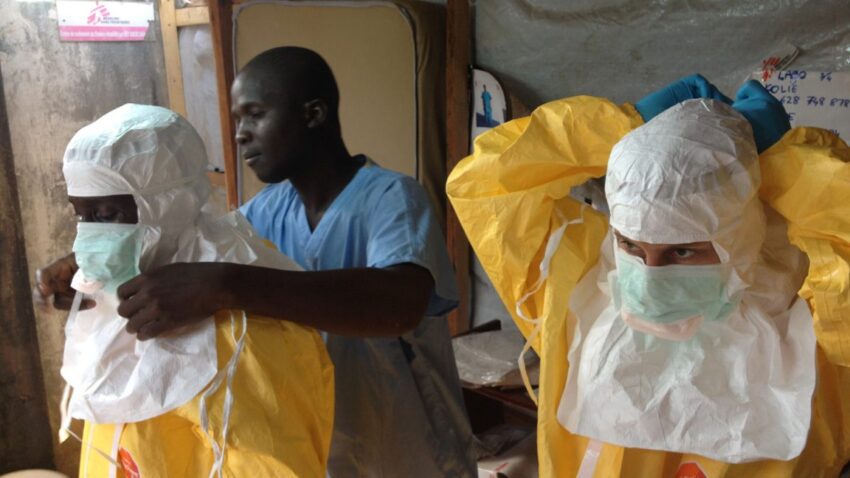
ebola outbreak in dr congo rages with An Ebola outbreak in a southwestern province of the Democratic Republic of the Congo is escalating quickly, as some health responders say they have less than a tenth of the funding needed to contain the deadly disease.
ebola outbreak in dr congo rages with
Overview of the Outbreak
The current Ebola outbreak in the Democratic Republic of the Congo (DRC) has raised significant concerns among health officials and international organizations. The first case was identified on August 20, 2025, in a 34-year-old pregnant woman who sought medical attention at a local hospital in the Kasai province. She presented symptoms including fever, bloody vomiting, and hemorrhages, and tragically succumbed to the disease just five days later, on August 25. Following her death, health authorities began to monitor the situation closely, leading to the official declaration of an outbreak on September 4, when the number of confirmed cases had risen to 28, with 15 fatalities.
Current Statistics
As of this week, the situation has deteriorated further, with reports indicating at least 57 confirmed cases and 35 deaths, resulting in a staggering 61 percent fatality rate. This high mortality rate is alarming and highlights the urgent need for effective intervention strategies. The World Health Organization (WHO) has been closely monitoring the outbreak, providing guidance and support to local health authorities. However, the challenges faced by these officials are significant.
Challenges in Containment
Officials in the DRC are grappling with multiple challenges in their efforts to contain the outbreak. One of the primary obstacles is the region’s inadequate infrastructure, particularly in terms of transportation and healthcare facilities. The Kasai province is known for its poor road networks, which complicates the logistics of delivering medical supplies and personnel to affected areas. Health responders have reported that they have less than 10% of the funding required to effectively manage the outbreak, severely limiting their ability to respond.
Resource Limitations
Treating Ebola is resource-intensive, necessitating a range of supplies and equipment. Essential items include personal protective equipment (PPE), antiviral medications, and other medical supplies. Furthermore, the transportation of healthcare workers to remote areas is critical for effective intervention. Unfortunately, health facilities in the outbreak zone are already overwhelmed and are running low on vital resources. Reports indicate that the only treatment center in the epicenter of the outbreak, located in the Bulape health zone, is operating at 119 percent capacity, according to the International Federation of Red Cross and Red Crescent Societies Africa (IFRC).
Health Infrastructure in Kasai Province
The healthcare infrastructure in the Kasai province has long been underfunded and under-resourced, making it particularly vulnerable to outbreaks of infectious diseases like Ebola. Many health facilities lack basic amenities such as clean water, electricity, and adequate sanitation. These deficiencies not only hinder the treatment of patients but also increase the risk of further transmission of the virus. The lack of clean water, for instance, complicates hygiene practices, which are crucial in preventing the spread of the disease.
Community Response
Community engagement is vital in managing outbreaks of infectious diseases. Local health workers and community leaders play a crucial role in disseminating information about the disease, its transmission, and preventive measures. However, misinformation can spread rapidly in such situations, leading to stigma and fear among the population. Health officials are working to combat misinformation by providing accurate and timely information to the community. This includes education on recognizing symptoms, the importance of seeking medical care, and the necessity of adhering to public health guidelines.
International Support and Funding Issues
The international community has historically played a significant role in supporting DRC during health crises. However, the current outbreak is occurring at a time when funding for global health initiatives is increasingly constrained. Many health organizations are reporting budget shortfalls, which complicates their ability to respond effectively to outbreaks. The WHO has called for increased funding and resources to combat the outbreak, emphasizing that timely intervention is crucial to prevent further loss of life.
Calls for Action
Health officials and organizations are urging governments and international bodies to step up their support for the DRC. The need for immediate funding is critical, as it would allow for the procurement of necessary medical supplies, the establishment of additional treatment centers, and the deployment of healthcare workers to affected areas. The situation is urgent, and without adequate resources, the outbreak could escalate further, leading to more cases and deaths.
Implications for Public Health
The ongoing Ebola outbreak in the DRC has significant implications for public health, both locally and globally. Ebola is a highly contagious virus that can spread rapidly in communities, especially in areas with limited healthcare infrastructure. The high fatality rate associated with this outbreak raises concerns about the potential for widespread transmission if containment measures are not implemented swiftly and effectively.
Global Health Security
This outbreak serves as a stark reminder of the importance of global health security. Infectious diseases do not recognize borders, and an outbreak in one region can have far-reaching consequences. The international community must prioritize funding and resources for health initiatives in vulnerable regions to prevent future outbreaks. Strengthening healthcare systems, improving disease surveillance, and enhancing community engagement are essential components of a comprehensive public health strategy.
Conclusion
The Ebola outbreak in the DRC is a pressing public health crisis that requires immediate attention and action. The combination of a high fatality rate, inadequate funding, and poor healthcare infrastructure poses significant challenges to containment efforts. The international community must rally to support the DRC in its fight against this deadly virus. Timely intervention, adequate resources, and community engagement are critical to curbing the outbreak and preventing further loss of life.
Source: Original report
Was this helpful?
Last Modified: September 27, 2025 at 2:37 am
0 views















